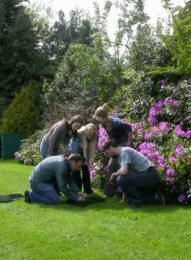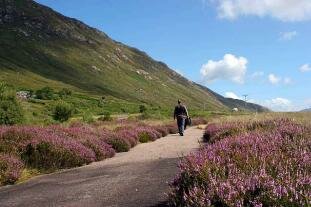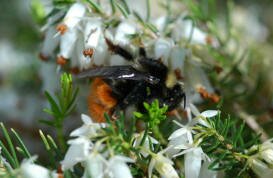|
"I've been with BBCT right from the start, and have enjoyed helping it grow. These days most of my time is taken up with my PhD, but I'm still very much involved, especially with resources for children. My research is on the rare Blaeberry bumblebee. I'm hoping members will send in records to help me produce an up-to-date distribution map. "
|
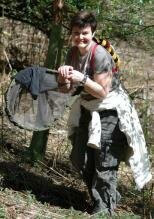
Jennifer Harrison-Cripps
Blaeberry Bumblebee Ecology & Conservation
|

Gillian Lye
Bumblebee Nesting Ecology & Conservation
|
"I'm currently studying for a PhD looking at how to improve agricultural areas for bumblebees. I'm hoping to find out more about the nesting sites bumblebees like to use, and how they find them. The first step towards conserving rare species is understanding them, which is why the research program overseen by BBCT is so crucial."
|
|
"Many areas of machair aren't what they use to be. Changes in management have left large tracts severely degraded. In some areas, groups like BBCT and RSPB are trying to restore the machair, but we don't really know how to go about it. My research will hopefully identify the best techniques."
|

Nicky Redpath
Machair Restoration for the Great Yellow Bumblebee
|
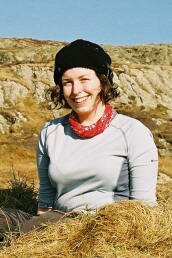
Steph O'Connor
Ecology of the Bombus lucorum cryptic complex
|
"Until recently, the UK had just one white-tailed bumblebee - but now we have three! Recent research has demonstrated that B. magnus and B. cryptarum both occur here too. However, to the human eye they look identical, so we know almost nothing about them. I'll be using genetic techniques to identify colonies of the different species, and will be studying them to find out more about their ecology."
|


